Project
HACID is an Innovation Action funded under the Horizon Europe Programme (Grant Agreement ID: 101070588). It develops a novel hybrid collective intelligence for decision support to professionals facing complex open-ended problems, promoting engagement, fairness and trust.
A decision support system is proposed that is based on structured domain knowledge, semi-automatically assembled in a domain knowledge graph from available data sources, such as scientific and gray literature.
Given a specific case within the addressed domain, a pool of experts is consulted to (i) extract supporting evidence and enrich it, generating a case knowledge graph (CKG) as a subset of the DKG, and (ii) provide one or more solutions to the problem. Exploiting the CKG, the HACID-DSS gathers the expert advice in a collective solution that aggregates the individual opinions and expands them with machine-generated suggestions. In this way, HACID harnesses the wisdom of the crowd in open-ended problems, relying on a traceable process based on supporting evidence for better explainability.
A set of evaluation methods is proposed to deal with domains where ground truth is not available, demonstrating the suitability of the proposed approach in a wide range of application domains. Two case studies have been selected for initial demonstration: medical diagnostics and climate change adaptation management.
Timeline
System Integration
All different components are fully integrated
KG validation
Design and evaluation of knowledge graphs
Full workflows available
Following initial requirements, the workflows and the corresponding KPIs are defined
Project end (Feb. 28, 2026)
DSS ready for demonstration and exploitation
First Technical Checkpoint
Main DSS prototype components available
Communication Kick-Off
Project website and social media channels online
Project start (Sept. 1, 2022)
People
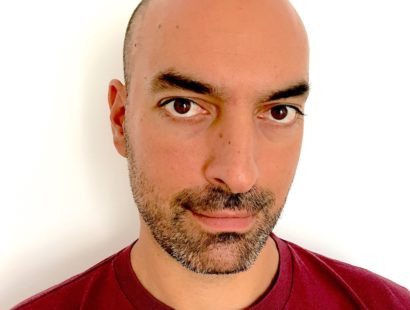
Vito Trianni
Research director at the ISTC-CNR, studies collective intelligence in natural and artificial systems. He is the coordinator of the HACID project.
His research mainly involves collective intelligence and swarm robotics studies, with particular emphasis on the design and analysis of complex self-organising systems and distributed cognitive processes. He pioneered the domain of Evolutionary Swarm Robotics, that is, the synthesis of collective behaviours for robotic swarms through the exploitation of evolutionary robotics techniques. He is also conducting research on the analysis and design of large-scale decentralised systems, not limited to swarm robotics systems (e.g., cyber-physical and socio-technical systems). Finally, he is pursuing the development of hybrid collective intelligence, where humans and machines interact to collectively solve complex problems (e.g., decision support to medical diagnostics and policy making). Updated publications can be found on his Google Scholar page.
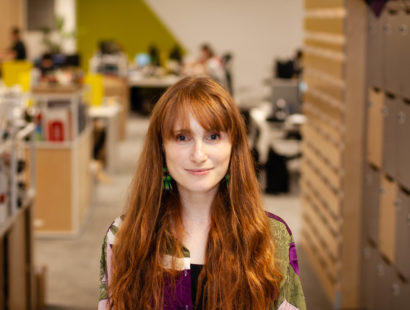
Aleks Berditchevskaia
Leads the research at Nesta’s Centre for Collective Intelligence Design, focusing on the different ways technology and data can empower communities, drive collective action and enhance group processes.

Stefan Herzog
Psychologist at the Max Planck Institute for Human Development interested in human judgment and decision making, cognitive science, collective intelligence and boosting of decision making.
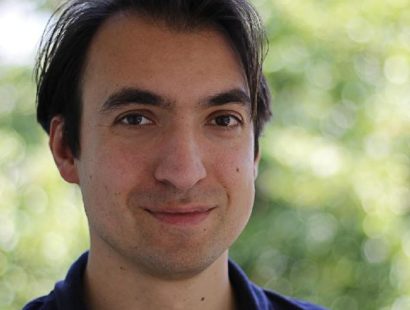
Gioele Barabucci
Research lead and Principal investigator for Human Dx EU interested in the design of knowledge and the evolution of information.
Gioele Barabucci is an associate professor of Computer Science at the Norwegian University of Science and Technology (NTNU), and, previously, Marie-Curie Experienced Researcher at the University of Cologne. He received his PhD in computer science from the University of Bologna. He has been involved in the development of the international Akoma Ntoso standard for legal documents and many other academic and open source projects. Gioele coordinates and leads the research activities of Human Dx EU in the fields of ontologies and collective intelligence.
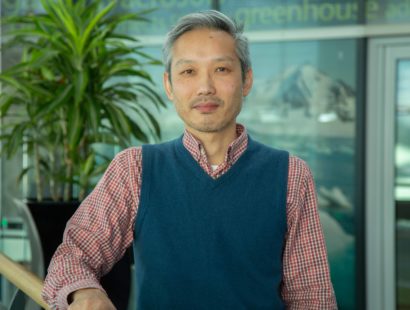
Fai Fung
Leads the UKCP Science into Services Team at the Met Office. He conducts research into climate services with a focus on uncovering information from environmental models that can support adaptation decision-making
As team leader at Met Office, he is responsible for the UKCP Climate Service, which manages the UK Climate Projection datasets and its data access services as well as provides user support. He is also senior research fellow at the University of Bristol.
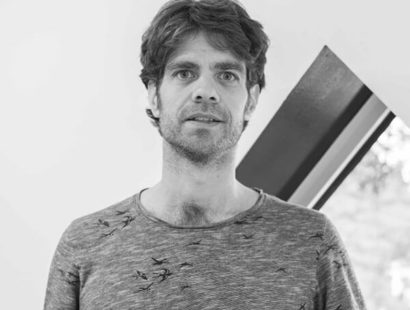
Ralf Kurvers
Biologist at the Max Planck Institute for Human Development interested in social and collective decision making in human and non-human animals.
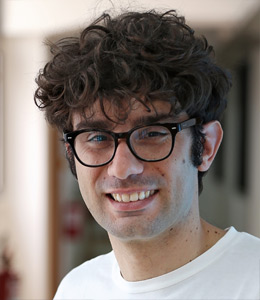
Andrea Giovanni Nuzzolese
Senior Researcher at the ISTC-CNR interested in ontology design, linked data, the Semantic Web, knowledge extraction from heterogeneous formats, natural language understanding, and social and assistive robotics.
He obtained his Ph.D. in Computer Science in 2014 from the University of Bologna, with a focus on software methodologies and architectures for extracting Knowledge Patterns from the Web. He has participated as a researcher in the “Interactive Knowledge Stack2” (IKS) project (EU FP7) and the MARIO project (EU H2020). Currently, he is the scientific coordinator for ISTC-CNR in the Water Health Open Knowledge (WHOW) project (2019-EU-IA-0089 EU CEF Telecom – Public Open Data), aimed at designing and implementing a framework to facilitate the creation of a vast ecosystem of data related to water consumption and quality, health parameters, and disease prevalence for advanced analysis and the development of innovative services. He is the lead researcher for ISTC-CNR in the Hybrid Human Artificial Collective Intelligence in Open-Ended Domains (HACID) project (101070588 HORIZON-CL4-2021-DIGITAL-EMERGING-01-10), focused on developing a new hybrid collective intelligence for decision support for professionals dealing with complex and open problems, promoting engagement, equity, and trust. He also leads research units and is a member of the executive board of the Fostering Open Science in Social Science Research (FOSSR) project (MUR PNRR IR IR0000008), which aims to become an Italian Open Science Cloud, similar to the European Open Science Cloud project, integrating innovative services developed by the project for data collection, management, and economic and social change data analysis, following the principle of equity. He was the principal investigator for the “Measuring the Impact of Research: Alternative Indicators” (MIRA) project funded by the National Agency for the Evaluation of the University and Research System (ANVUR) as part of the “Research Evaluation Methods” theme of the “Research Ideas” program. He was the scientific coordinator for ISTC-CNR of the collaboration agreement with the Digital Innovation Team of the Italian Prime Minister’s Office, aimed at designing and implementing the ontology network of the Italian Public Administration known as OntoPiA. He has published over 80 scientific papers in journals, conferences, and international workshops on ontology design, linked data, knowledge extraction, machine reading, and sentiment analysis. He is a member of program committees for semantic web and ontology engineering conferences and workshops. Additionally, he serves as a reviewer for scientific journals such as the Semantic Web Journal and the Journal of Web Semantics. He is a co-founder of BUP Srl, an innovative startup dedicated to designing and implementing solutions for creating and managing knowledge graphs.
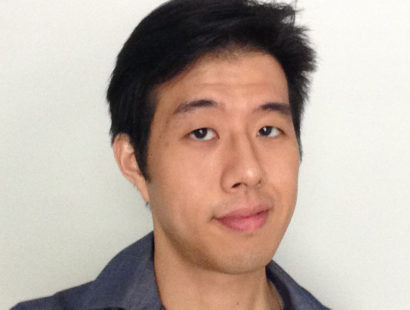
Nathan Fu
Product lead at Human Dx EU, expert in cutting-edge technologies such as computer vision, artificial intelligence, and blockchain.
Nathan has years of experience in the healthcare and retail sectors at organizations large and small, holding different positions in varying disciplines of engineering, ranging from systems to software and embedded engineering. Having watched some of the most impactful trends in the history of technology adoption, Nathan trusts that the most powerful change comes from the collective efforts of many and that we must leverage technology for societal good.
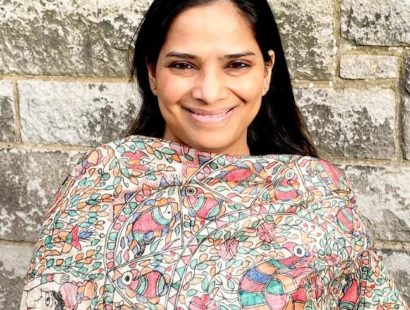
Neha Mittal
Leads the user consultation aspect of the UKCP climate services within the UKCP Science into Services Team at the Met Office
Her research revolves around the co-production of climate services across sectors and geographical regions with focus on understanding the climate information needs of the users, and their perceptions of barriers and enablers to the use of climate information.

Fiorela Ciroku
Fiorela Ciroku is a doctor in Computer Science and Engineering, graduated at the University of Bologna in 2023.
The topic of her doctorate is “Knowledge graph modelling for supporting knowledge discovery in the cultural heritage domain”, under the supervision of Valentina Presutti. During her PhD, Fiorela has worked as a tutor for the “Software Engineering” and “Algorithm and Data structure” courses at the University of Bologna. She has obtained her Master’s degree in “Web Science and Technology” at the University of Koblenz-Landau, Germany, under the supervision of Prof. Steffen Staab. During this time, she worked as a tutor for the “Semantic Web” course for 3 years. In her earlier studies, she graduated from the University of Tirana in Business Informatics. After graduation, an internship as a Specialist in Communication Systems by the Ministry of Defence of Albania was completed successfully.

Weilai Xu
A dedicated postdoctoral research fellow at the ISTC-CNR with a passion for advancing the fields of AI and NLP.
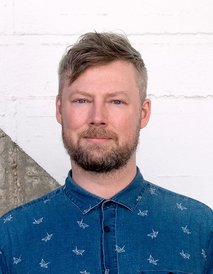
Nikolas Zoeller
Physicist at the Max Planck Institute for Human Development, interested in collective intelligence, collaboration and group processes, network analysis, agent based modelling and machine Learning/AI
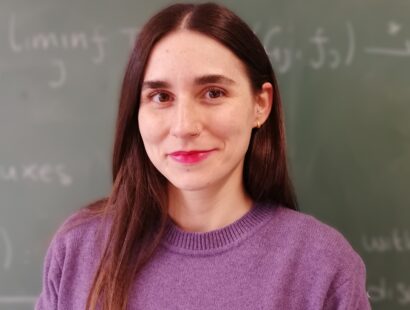
Chiara D’Onofrio
Mathematician, postdoctoral research fellow at the ISTC-CNR

Chris Edgar
Researcher at Nesta’s Centre for Collective Intelligence Design interested in social interaction and collective intelligence and how our knowledge of these processes can help us tackle society’s problems.

Victor Shia
Engineering lead at Human Dx EU, deals with product development.
Victor graduated from UC Berkeley with a BS, MS, and PhD in EECS. His dissertation focused on stability in human motion. He has worked at SRI, done research on body sensor networks and human-in-the-loop autonomous vehicles, and is now also an adjunct Engineering professor at Harvey Mudd.

Octavianus Sinaga
Research fellow at the ISTC-CNR interested in NLP, Generative AI, and Bioinformatics

Eugene Chu
Medicine lead at Human Dx EU, provides direct expertise for better design.
Eugene graduated from Yale with a BS in Biology, UC San Francisco (UCSF) for medical school, and completed residency and fellowships in rhinology and skull base surgery at Johns Hopkins Hospital as well as facial plastics/reconstructive surgery and anterior skull base surgery at UC Irvine. He is currently also the department head of head and neck surgery at Kaiser Permanente (KP) and a clinical assistant professor at UC Irvine.

Irving Lin
Technical co-founder of Human Dx.
Irving has worked in healthtech and AI for over a decade, including being an early engineer at Facebook (pre-IPO) and Drchrono (mobile EMR), and co-founding Global Expertise Exchange. Irving received his BS in EECS from UC Berkeley, MSCS from Stanford, and participated in Y Combinator.
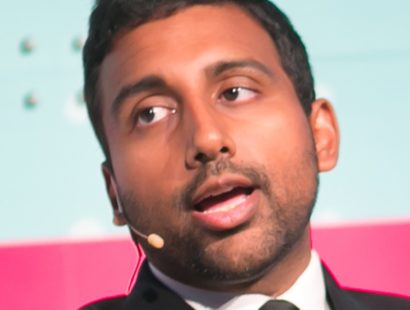
Jayanth Komarneni
Founder/CEO of Human Dx.
Jayanth has advised many healthcare stakeholders, including governments, foundations, payers, and providers. Previously, he worked at McKinsey and Bain before helping launch an alternative investment firm (billions in assets under management). Jayanth received his BS, BA, MS, and MBA from Penn and his MSc from Oxford. Jayanth participated in Y Combinator and is a Thouron Scholar, Luce Scholar, and Rhodes Scholarship finalist.



